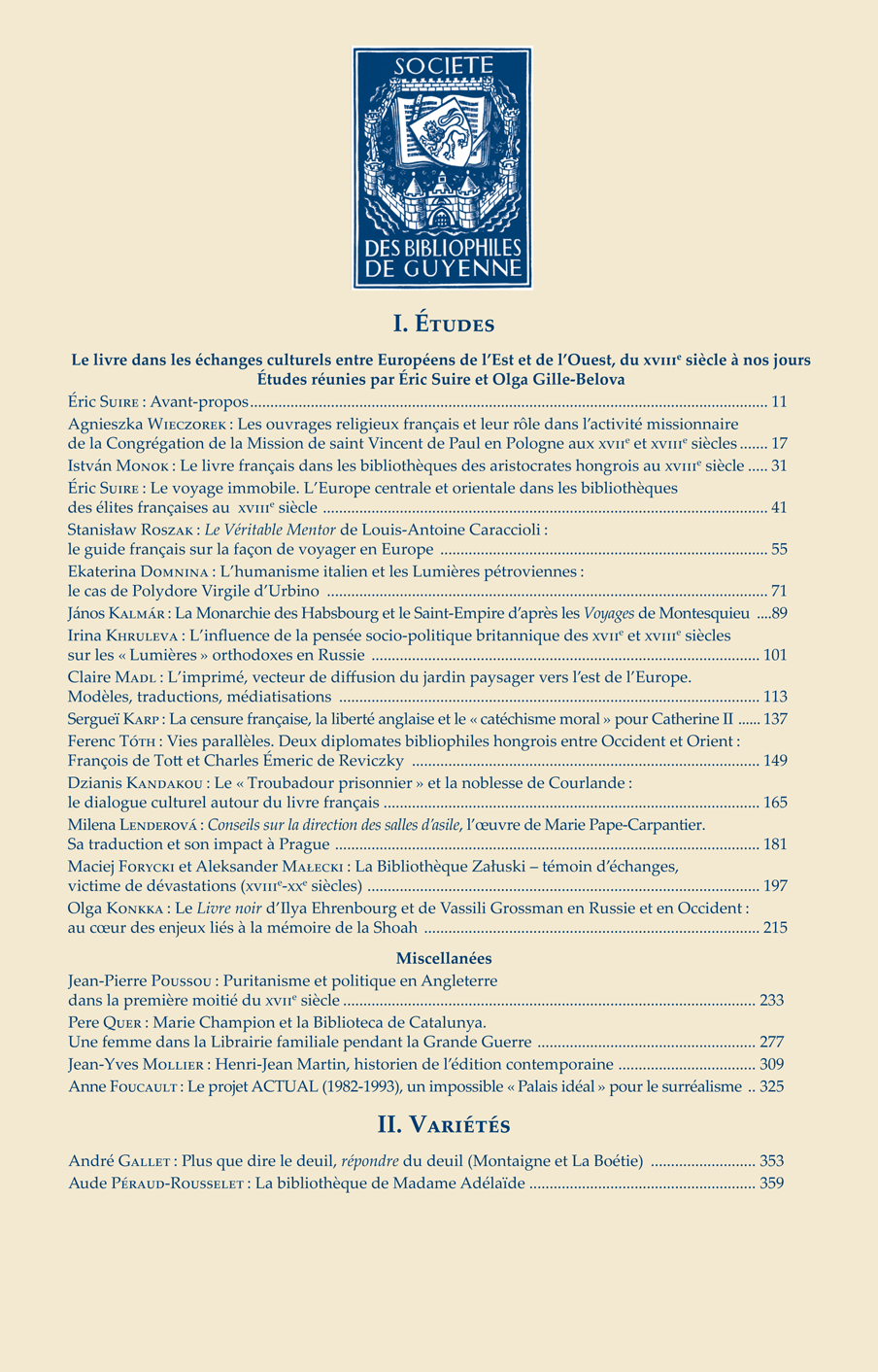Le « Troubadour prisonnier » et la noblesse de Courlande : le dialogue culturel autour du livre français
Abstract
This article analyses a manuscript collection of poetry by an unknown French officer who was held prisoner by the Government of Courland after the war of 1812. His occasional poetry echoes the Troubadours, a style typical of early nineteenth-century French poetry. The collection of verses bears witness to the prisoner’s deep involvement in local sociability and his favorable contacts with local elites. The relationship between the author and his hosts is based on a common interest for books, French literature, and the command of the norms of sociability set by French aristocratic culture and adopted by the Russian Empire at the turn of the nineteenth century. As a result, this dialogue in the form of poetry transmits a particular group identity. Mediated through the common European language, this identity is not at variance with patriotic feelings nor does it impede the expression of national cultural features.
How to Cite
More Citation Formats
